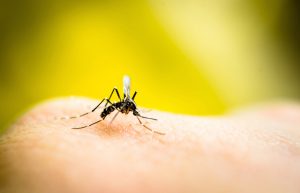
On Monday 1 February 2016, the World Health Organization (WHO) Director-General Margaret Chan declared the recent cluster of microcephaly and other neurological abnormalities (including Guillain-Barré Syndrome) in Latin America a Public Health Emergency of International Concern (PHEIC) under article 12 of the International Health Regulations (2005). While Zika Virus is strongly associated with these cases, the WHO Director-General and the Emergency Committee advising her did not expressly include Zika Virus in the PHEIC, with further research necessary to establish a causative link between Zika infections and the disease clusters.
Following the PHEIC declaration, the Director-General must release Temporary Recommendations under article 15 of the IHR, and is expected to occur on Tuesday 2 February 2016. It is critical that these recommendations require countries to respect, protect, and fulfil women’s health-related human rights, including reproductive rights. This includes access to contraception (including the birth control pill and condoms) but also to accessible, affordable, acceptable, and quality abortions.
The clusters of microcephaly cases that form the basis of the PHEIC appear to be quite severe, with possible brain damage and poor long-term health outcomes for the babies including learning disabilities, impaired motor functions, facial deformities and seizures. There is no cure or treatment for microcephaly beyond physical and occupation therapy.
The Director-General’s Temporary Recommendations should include a directive to countries to ensure that women at risk of Zika virus infection have access to birth control and safe abortion. For most countries in the Americas, this will require decriminalizing abortion or ensuring exemptions permitting abortions in medical emergencies include possible Zika virus infection. Calls by countries that women simply avoid getting pregnant – including those by the governments of Brazil, Honduras, Colombia, and El Salvador – without providing access to reproductive rights services, are not only ineffective and naïve but dangerous to both women’s and public health.
According to the Center for Reproductive Rights “The World’s Abortion Laws 2016”, nearly all countries in the Americas currently experiencing or likely to experience Zika virus cases have laws that may prevent women accessing reproductive services. In the Americas, only Canada and Chile are not predicted to have Zika transmission as the Aedes genus of mosquito is not present. Canada recognizes women’s health human rights with regard to abortion, however Chile completely prohibits abortion (life saving abortions are permitted on the grounds of a criminal defense of necessity). In South America, only Uruguay, French Guiana, and Guyana have laws that allow access to abortion without restriction as to reason. Brazil, Paraguay, Suriname and Venezuela, abortion is either completely criminalized or only permitted to save a woman’s life, and Colombia allows abortion in cases of foetal impairment. In Central America, no countries provide access to abortion without restriction as to reason and in El Salvador, Guatemala, Honduras, and Nicaragua, abortion is either completely criminalized or only permitted to save a woman’s life, however Belize and Panama allows for abortion in cases of foetal impairment. In North America, Mexico allows for abortion in cases of foetal impairment, and while abortion is a constitutionally guaranteed right in the United States, a number of states have been implementing laws that restrict the accessibility of abortion, including southern states such as Texas which may experience local transmission of Zika cases. The Texas case is coming before the United States Supreme Court this term in Whole Woman’s Health et al v. Hellerstedt.
It is unfair, and ineffective, to place the burden of responsibility for preventing foetal malformations solely on the women. Governments cannot ask women to postpone having a family indefinitely, especially if they do not have access to safe reproductive services. Governments must act to protect the health of their citizens, and meet their obligations under international health and human rights law.
To truly respect the dignity and health of women of childbearing age, the WHO Director-General should formally recommend that States Parties ensure access to contraception and safe abortions. A government’s duty to guarantee the health and safety of women and their reproductive freedoms is an ethical and human rights imperative in the ongoing Zika pandemic.



